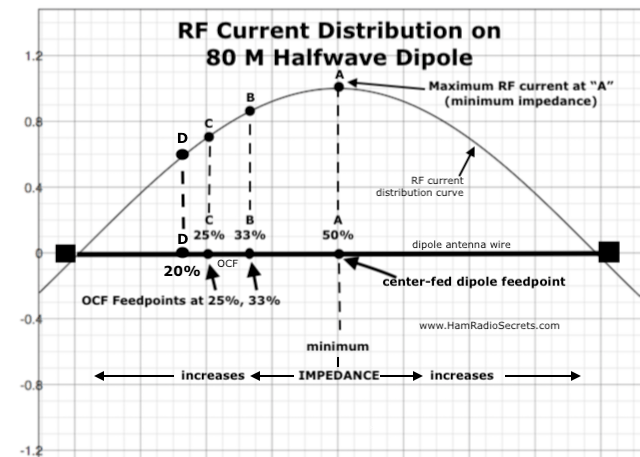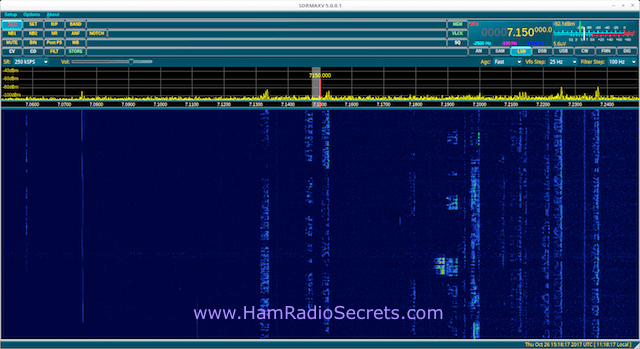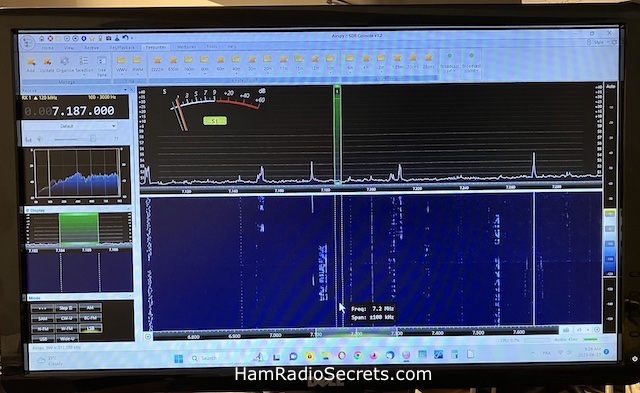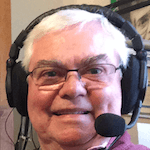Ham Radio License
Essential Basic Info
Why is a ham radio license required? If you want to play the "game", you must be . . . ready, willing and able to:
- learn the rules,
- pass the admission tests (exams),
- accept to abide by the rules
- accept to obey the law!
. . . before a team (your country) will accept to let you "play"! ;-)
There is a more "official" reason than what I stated above, of course!
Each member country of the International Telecommunication Union (ITU) must ensure that their licensed amateur radio operators will have the proficiency and knowledge levels to meet the ITU standards for an orderly use of the internationally shared radio spectrum.
Member countries of the ITU also consider ham radio as a public service.
Governments created this "Service" in part to fill the need for a pool
of experts who could provide communications in times of emergency on a voluntary basis.
Countless lives have been saved by amateur radio operators over the years by providing emergency communications in dire situations.
Online interactive courses now make getting a license to operate ham radios easier than ever.
Entry Level License
The entry level ham radio license requirements and privileges vary slightly from one country to another.
There can be differences, because the privileges granted to entry level amateur radio license holders are restricted to commercially made and approved equipment, operating modes and power levels that...
- have a limited reach,
- and are not likely to cause interference.
In the United States, there are three classes (levels) of amateur radio licenses:
- Technician Class (basic)
- General Class (intermediate)
- Extra Class (advanced)
United States Study Material
There are books available that are suitable for a no-nonsense preparation for the exams. The first place to look for authoritative publications is the ARRL (American Radio Relay League).
You can also prepare for your ham radio license exam by taking online interactive courses.
Canadian Study Material
Fundamentally, the differences between US and Canada are not major because the entry level is the mandatory requirement prior to obtaining the more advanced license levels.
For example, in Canada, the Basic Amateur Radio License allows...
- access all amateur bands above 30 MHz (i.e. VHF, UHF...).
- use a maximum of 250 watts DC transmitter input power.
- build (see note) and operate all station equipment, except for "home-made" transmitters.
Note: "Build", in the context of the Basic Certificate, is limited to the assembly of commercially available transmitter kits of professional design.
Advanced Ham Radio License
The more advanced levels must meet the internationally agreed upon levels of proficiency because they allow many, many more privileges, such as...
- Transmitting on the amateur radio bands of frequencies in the HF portion of the radio spectrum, below 30 Mhz.
- Transmitting using specialized transmitting modes (i.e. AFSK, FSK, PSK, SSTV, RTTY, AM, etc...).
- Building their own equipment and/or modifying commercially made equipment.
- Experimenting with new modes of communication that have not yet been approved for widespread use(under special permission).
- Transmitting power levels up to the maximum permitted limit (i.e.1000 watts DC transmitter input, in Canada).
Understandably, these extra privileges come with additional
responsibilities. Thus, the requirement for higher level of technical
knowledge ... and more advanced exams (more on these below).
Download
Government Approved Extra Info
Here are links to download ham radio requirements and privileges for the United States and for Canada.
To find out where to get a description of amateur radio license requirements and privileges in your country, click here to view. (Web page)
Most IARU member societies offer some form of ham radio training. The link above will tell you where you can get in touch with them.
Ham Radio Test
Entry Level Topics
One has to pass a ham radio test to obtain a license to :
- operate an amateur radio transmitter and
- obtain a valid, internationally recognized call sign.
The test for your first ham radio license (basic entry level) will have one or more questions in each of the topics listed below. Each country may have a different name for its basic amateur radio license:
- Technician License in the United States
- AmateurRadio Operator Certificate with Basic Qualification in Canada
The information below will help you understand what the exams will cover.
Exam Topics
- Regulations and Policies, including applicable portions of the International Telecommunication Union (ITU) Radio Regulations.
- Operating and Procedures
- Station Assembly, Practice and Safety
- Radio Circuit Components
- Basic Electronics and Theory
- Antenna Systems Including Feedlines
- Radio Wave Propagation
- Interference and Suppression
The entry level license does not require morse code qualification, at least not in North America.
Getting Ready For The Test

What is the best way to get ready for a ham radio license test? The same way that you would get ready for the selection session of any team sport or of any college.
Practice! Practice! Practice!
You may be able to pass the exam by cramming just before it ... but you will soon forget what you so hastily "remembered" and you will eventually look foolish on the air! Worse, you might even risk losing your license and all the privileges that come with it!
Do not try to memorize! Instead, try to understand the subject matter. This way, the answers will come to you naturally.
Trust me. Understanding the many aspects of amateur radio will increase your enjoyment of the amateur radio hobby tremendously. In addition, you will be able to help others understand too! Another source of satisfaction.
The typical questions that you will have to answer are listed in the question banks (see links below).
Practice answering them at random until you get a score above 90%. This way, when you sit for the exam, you will be able to pass easily regardless of how nervous you might be.
In fact, you will be a lot less nervous if you understand what you are doing than if you try to just memorize things. Again. Trust me on this.
Ham Radio License Study Guides
Some people like to study online with the help of videos and live interaction. Others prefer to read a book or eBook.There is a list below of a few book titles to seriously consider.
For US Citizens
ARRL Ham Radio License Manual 5th Edition – Complete Study Guide with Question Pool to Pass the Technician Class Amateur Radio Exam
For Canadian Citizens
Hamstudy Basic 2021/2022: Everything you need to know for your Canadian Amateur Radio Basic Qualification Exam
For UK Citizens
The Foundation Licence Manual - for Radio Amateurs
For Australian Citizens
The Foundation Manual - Your Entry Into Amateur Radio
https://www.wia.org.au/licenses/foundation/foundationmanual/
NOTE: There are many more noteworthy book titles listed here.
Basic Level
Ham Radio License Privileges
In Canada, the Basic Qualification Examination is made of 100 questions (multiple choice answers). It usually takes less than one hour to complete. The pass mark is 70%.
Basic qualification allows access to all amateur bands above 30 MHz.
However, Basic With Honors (a score of 80% or more) also allows access to all amateur bands below 30 MHz!
Passing requirements are somewhat similar in the United States.
Ham Radio License
Test Question Banks
Click the links below to download:
Canada
- Basic Level Test Questions Bank
- Advanced Level Test Questions Bank
United States
- Technician class question pool
- General class question pool
- Extra class question pool
Get going!
Study. Practice. Pass the exam. Enjoy!
Online tests are even available for US citizens!
Operating Guide
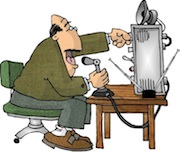
Being allowed to operate a ham radio station ... is a privilege.
The individuals who have been granted a ham radio license to operate an amateur radio station by the regulating agency of their country - benefit from important privileges.
These unique privileges come with responsibilities. All privileges do!
International Agreements
All amateur radio operators must follow internationally accepted operating procedures and code of ethics. The operator who does not abide by the rules runs the risk of losing her/his license and call sign!
Amateur radio societies, from (most) countries of the world, collaborate to ensure an orderly use of the privileges granted to ham radio operators.
The ham societies collaborate under the auspices of a democratic organization called the IARU - International Amateur Radio Union.
Why collaborate? Because we all share a common natural resource: allocated portions of the radio spectrum (air waves).
R-E-S-P-E-C-T
A ham radio license does not give its owner "exclusive rights" when on the air.
Like aircraft pilots, who share the air space, must abide by commonly accepted rules and regulations, so must radio amateurs, but for different reasons.
- In the case of aircraft pilots, their safety and that of others, both in the air and on the ground, is at stake.
Ham radio operators must also abide by the law and follow rules. We must avoid causing interference to other ham radio stations, as well as other users of the radio spectrum such as......
- commercial radio and TV broadcasting stations, their listeners ...
- other commercial users such as air traffic control, marine, road transport dispatch, private telecommunication channels ...
- government, military, police, fire departments ...
The list of radio spectrum users is nearly endless!
Huge Privileges
Unlike commercial radio, who are usually allocated only one frequency to operate on, the ham radio community can operate on a huge number of frequencies!
Amateur and ham radio operators are all over the place ... meaning that we can operate in any of many narrow bands of frequencies scattered all over the radio spectrum.
We often operate "elbow to elbow" with a large number of neighbors,
in crowded areas of the radio spectrum. Therefore, we must always be
careful not to "step on anyone's toes" (meaning interfere with) and risk losing our precious ham radio license!
Code Of Ethics
And
Procedures
A must read for the ham radio license holder is the internationally recognized document which describes, in detail, how to operate as an amateur radio operator, within legal limits and in a considerate manner. It is titled:
"IARU Ethics And Operating Procedures
For The Radio Amateur"
You can download it from here.
(PDF document 3.43 MB)
Click here for a guide to the use of ham radio amplifiers
Click here for mobile ham radio operating tips
73 de VE2DPE
Claude Jollet
104-30 avenue des Berges,
Notre-Dame-des-Prairies, Québec, Canada J6E 1M9
QTH Locator: FN36gb
Disclosure
If
you make a purchase via a link on this site, I may receive a small
commission on the transaction, at no extra cost to you. Thank you!
(One word queries work best)
FOUND THIS
SITE
USEFUL?
VE2DPE
Is a member
in good standing
of
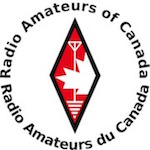

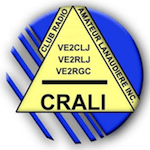
Also a proud member of an international community of solopreneurs
using SoloBuildIt!
(SBI!)
to promote my self-published eBooks
since 2005.
See my review
of this unique product for online businesses.
CQ CQ CQ
If you have a question, a comment or a topic you would like me to cover, please do not hesitate to ask here.


